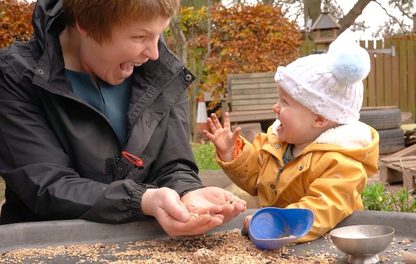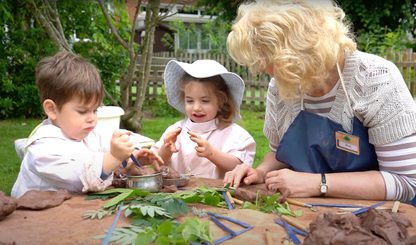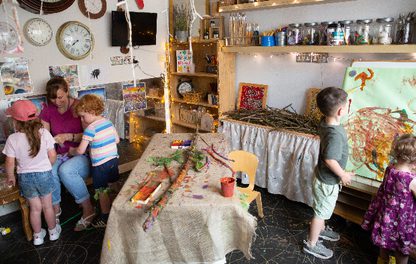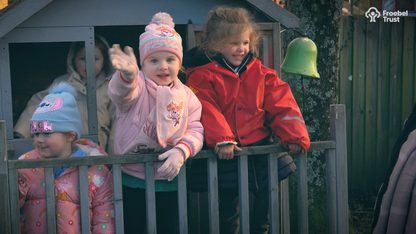The story of how children and educators created a kitchen garden at a school in Kingston, Jamaica.
This Froebel Trust funded garden project involved six educators and a group of 60 children, aged between 3 and 6 years old at Hope Valley Experimental Infant and Primary School, in the community of August Town in Kingston, Jamaica. Together they created a sustainable rainwater kitchen garden in the grounds of the school where the children could play, learn, grow and harvest their own produce.
"In addition to children experiencing food insecurity, which was exacerbated by the Covid- 19 pandemic, kindergarten/infant schools in our local communities face significant barriers in the provision of an enabling environment for education and play." Dr Olivene Burke, project leader
The school garden gives the children space and time to play with nature.

Connecting with nature
The rainwater fed kitchen garden gave the children an opportunity to interact with nature - growing and harvesting crops. The garden serves as a green area where children can play and connect with nature, in a school landscape which is predominantly concrete. The children and school staff were also able to take home the produce they harvested.

A child-centred approach
The garden facilitated freedom through guidance which allowed educators to ensure play opportunities which met each child’s unique needs and interests, using Froebelian gifts and occupations.

Creative expression
The use of song and dance by children in the garden facilitated and encouraged children to express themselves creatively through art, music, and movement. Educators observed the young children creating dance moves in their play that mimic gardening practices.

Learning through play
"The collaborative and inclusive nature of the environment encouraged children to develop shared objectives, which led to a sense of camaraderie and friendship. Moreover, playing outside in the garden allowed children to learn from each other as they worked together to solve problems and overcome challenges."
Dr Olivene Burke, project leader

"The benefits of a school garden extend far beyond the classroom. One of the most significant advantages is its contribution to food security. By growing fruits and vegetables the school can provide nutritious for their students, helping to combat food insecurity in the community." Dr Olivene Burke, project leader
"Research of this nature is important, considering that many kindergarten schools within marginalised communities lack green spaces or natural components that may be utilised in an integrative teaching approach." Dr Olivene Burke, project leader






